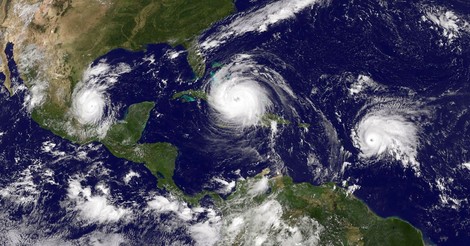Your podcast discovery platform
Curious minds select the most fascinating podcasts from around the world. Discover hand-piqd audio recommendations on your favorite topics.

piqer for: Climate and Environment Global finds
Andrea is a writer and researcher based out of Chicago. Andrea has a Bachelor's degree in environmental science from The Ohio State University and a Master's in Environmental Planning and Management at National Taiwan University, where she specialized in climate adaptation and urbanization. She writes for TaiwaneseAmerican.org, and sends out a biweekly newsletter which includes articles on politics, environment, identity, and intersections of race, class, and gender (http://eepurl.com/bPv-F5).
The 2018 Hurricane Season: What Scientists Are Predicting
September is hurricane high season due to the Atlantic Ocean being the warmest this month than any other time of the year. This year, weather conditions have been somewhat less favorable for hurricane formation, but there are many factors involved in building storms, and even more uncertainty around their impact to people on land.
With last year's devastating season of Harvey, Maria, and Irma, many communities are still dealing with the aftermath of flooding and other effects. If this season is just as bad, it could spell disaster for many on the coasts and in the Caribbean.
"It’s hard to predict the number of hurricanes because they’re formed by a complicated interplay of climate and weather variables. Yes, warm waters are a key ingredient to fuel storms. But hurricanes are also influenced and steered by massive global trends in weather that are hard to predict: The warming or cooling of waters in the Pacific (El Niño and La Niña), patterns like the Madden-Julian oscillation ... and temperature differences between the surface and the higher reaches of the atmosphere all play a role."
But scientists are improving in making forecasts. We can predict hurricanes more accurately and earlier than ever before, which could help hurricane preparedness.
Another advancement scientists have found is how climate change is affecting hurricane characteristics in general: making them slower and wetter. Hurricanes are moving more slowly, with both slower wind speeds but also lingering over areas longer than before. And, they're putting out more precipitation.
All in all, predictions are improving, but there is still much to know about hurricanes and the changes that are coming due to climate change. For example, Hurricane Florence has made changes that were unanticipated just in the last few days.
Overall, this piece gives a lot of accessible examples about last year's and this year's hurricane seasons.
